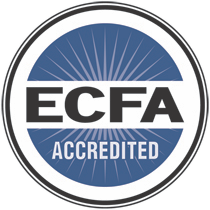Linkin Park’s Chester Bennington and the Unexpected Path to Chronic Homelessness and Addiction
Adverse Childhood Experiences and Trauma Informed Care
As news of the suicide of the band Linkin Park’s Chester Bennington begins to sink in, the familiar questions around these tragic events arises, yet again. How can someone with so much find themselves on a path that involves
addiction and suicide? There are common platitudes that attempt to address these tragedies. However, there are deeper, more thoughtful answers that help shed light on the why questions we might have. In the case of Bennington, understanding how adversity and trauma in childhood effect adult outcomes in life warrant a deeper look.

In the mid-1980’s Dr. Vincent Felitti, a doctor at an obesity clinic in California, noticed that a large number of clients at his clinic were dropping out of treatment, even though they were successfully losing weight. After checking into the backgrounds of those who kept dropping out, he discovered that a common theme involved adverse childhood experiences such as physical or sexual abuse. He wondered if obesity might be for some people an unconscious defense that they used to make themselves unattractive as a way of coping with their adverse childhood experiences.
This eventually led to a study by Dr. Felitti that piqued the interest of the U.S. Center for Disease Control and Kaiser Permamente. The nationwide study, titled the Adverse Childhood Experiences (ACE) Study, was conducted in the 1990’s. The study eventually involved more than 17,000 subjects and established a correlation between adverse childhood experiences and physical ailments and mental health adversities later in life.
Outcomes included a shortened life span by up to 20 years, premature death, and a higher percentage of suicide. One outcome of the ACES study was the development of a quick, 10 question checklist that asks about childhood abuse, neglect, and household dysfunction. Things like physical, emotional, and sexual abuse, neglect, substance abuse, and mental illness are part of this ACE evaluation. The higher the number on a 1-10 scale, the greater likelihood the respondent has had significant challenges later in life and the worse the person’s health outcomes were likely to be. Alcoholism, illicit drug use, a pattern of missed work, loss of employment, smoking, sedentary lifestyle, and a host of other adverse behaviors, including suicide, are all potential outcomes for those with a higher ACEs score. Similarly, the higher the number on the 1-10 scale, the greater likelihood of physical and mental health issues such as severe obesity, diabetes, depression, STDs, heart disease, cancer, stroke, COPD and a propensity to fall and break bones, etc.

More recently, Dr. Nadine Burke Harris, a pediatrician in San Francisco, has been at the forefront of a one woman campaign to raise nationwide awareness of the frequency of ACES for disadvantaged populations, such as the poor and chronically homeless. In the original study, 67% of this unique population had at least one ACE, and 12.5% (one in eight) had four or more.
More close to home, we recently gave the 10 question ACE Survey to current residents at Shepherd’s House Ministries, our grace-based recovery program for the addicted and chronically homeless located in Central Oregon. Almost half (46%) reported 4 or more adverse childhood experiences, four times above the national average. Several reported 6 to 8 out of 10 maximum adverse childhood experiences, and one of our residents reported having had all 10 of the identified adverse childhood experiences.
These are staggering results to contemplate, especially as society considers the challenge associated with helping the chronically homeless and addicted population across our nation. To further complicate the struggle for meaningful recovery, residents often come to us with significant alcohol and drug abuse issues, diabetes, COPD, obesity, and depression, among other maladies.
This begs a question. How do these studies inform the work that goes on in homeless recovery shelters like ours at Shepherd’s House Ministries? Though these results were not surprising from our years of working with the chronically homeless and addicted, they did confirm the importance of continuing the work of effectively addressing the life-controlling issues that perpetuate long-term cycles of pain and homelessness. As we step deep into the lives of our residents and build authentic community with them, we are contributing to their journeys towards health and wholeness with the hope of them becoming productive members of our community.
The State of Oregon Addictions and Mental Health Division, since July 1, 2015, has been promoting what is known as “Trauma Informed Services”. The purpose of this approach, among other goals, is to promote resiliency, health, and wellness for those who have experienced trauma. Our particular staff includes a registered nurse, a staff physician (both volunteers), and several other individuals with strong backgrounds in addictions treatment and mental health.
Fortunately, they have been practicing Trauma Informed Care well before the State of Oregon promoted it. We are grateful we now have relevant partnership with outside entities like Deschutes County Behavioral Health and other mental health professionals in the area that support the important work of helping the addicted and homeless in these challenging areas of recovery. There is good news for the many individuals, people like the residents at Shepherd’s House Ministries, who find themselves in these challenging life circumstances.
We are convinced that through a holistic approach to healing, chronically homeless and addicted individuals can see authentic life-transformation both physically, mentally and spiritually. Though the death of Chester Bennington was shocking and tragic, as a person who admittedly experienced childhood trauma and abuse, his story is unfortunately a familiar tale. That is why we need to support organizations across the country who are working to effectively address these huge challenges. And,that is also why we are grateful for the work we get to do everyday with the addicted and abused in our program who are finding a meaningful and hopeful path to recovery.
By Chuck Hemingway, Addiction Specialist at Shepherd’s House Ministries in Bend, OR


